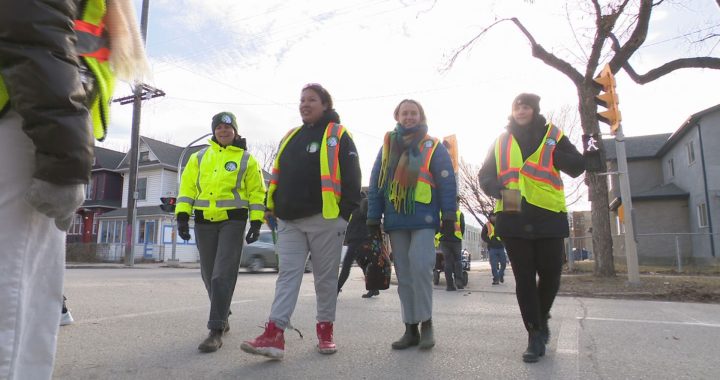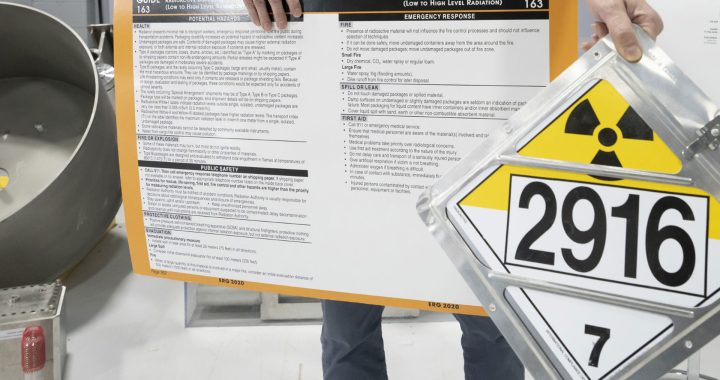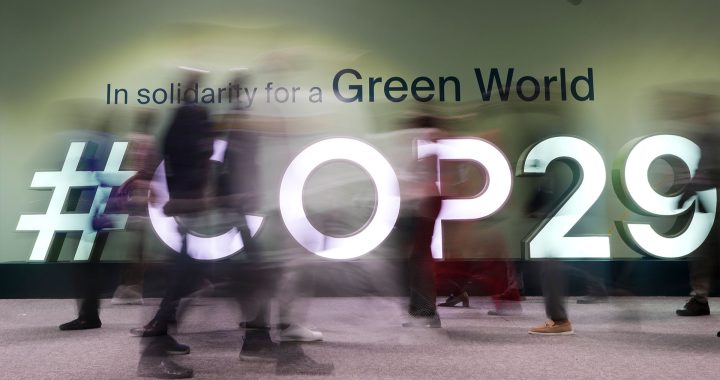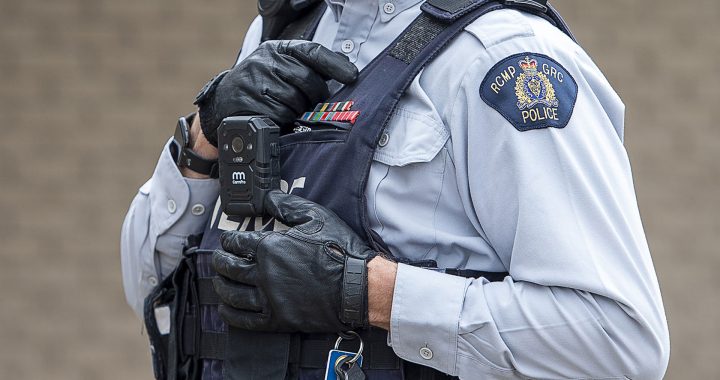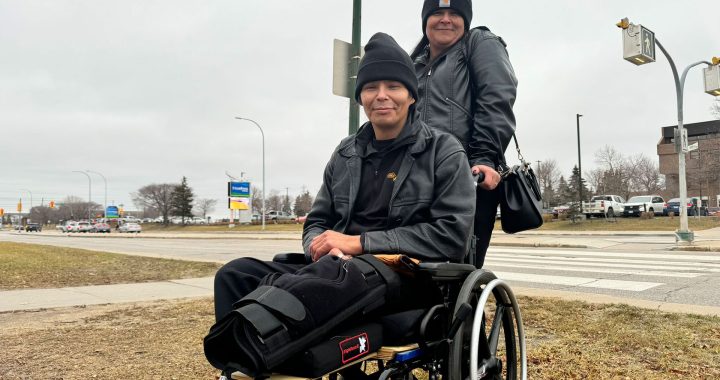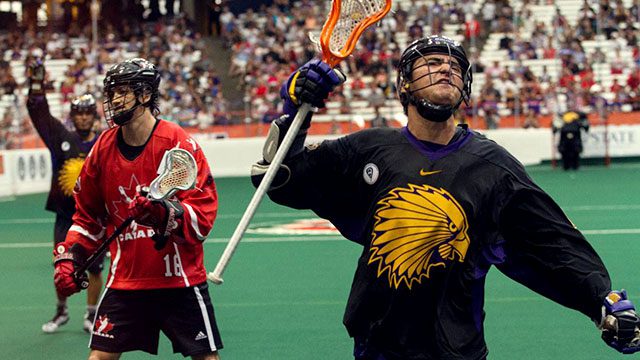
Photo: Iroquois Nationals Lacrosse / Facebook
After a two-day travel delay due to diplomatic discussions between Canada and Israel the Iroquois Nationals men’s lacrosse team is en route to Israel to compete in the 2018 World Lacrosse Championships.
The team was turned away from boarding a flight at Toronto’s Pearson Airport on Monday after presenting their Haudenosaunee passports as an assertion of their Indigenous sovereignty.
They then waited and practiced at Six Nations while Canadian and Israeli officials worked out an agreement.
That agreement was reached around 6 p.m. Tuesday, Israel’s ambassador to Canada, Nimrod Barkan, told APTN News Wednesday.
Barkan said the Haudenosaunee passports are “not recognized in any agreement between Canada and Israel, and therefore we could not let them in without the consent of the Canadian government.
He said Canada granted the team, but no other Haudenosaunee passport holders, a one-time exemption to travel to Israel using their Indigenous passports.
A spokesperson for Global Affairs Canada confirmed the agreement but did not share details.
It’s not the first time the team has ran into problems with the passports. In 2010, the team was denied travel to Manchester for the world championships, and in 2015 the under-19 women’s team was unable to travel to Scotland for their equivalent tournament.
Citizens of the Haudenosaunee Confederacy — which include the Mohawk, Seneca Onondaga, Cayuga and Oneida Nations — see the acceptance of their passports as a recognition of their sovereignty.
Nationals asked to boycott games in solidarity with Palestinians
But the latest effort to assert that sovereignty comes amid calls for the Nationals to boycott the tournament since it’s being held in Israel, a country that last month was condemned by the United Nations for its massacre of Palestinians who were nonviolently protesting in Gaza against Israel’s occupation.
According to recent news reports, the Israeli military has killed at least 124 Palestinians and wounded at least 14,000 more since the end of March, when Palestinians in Gaza launched their nonviolent Great March of Return protests.
Last week the Palestinian Campaign for Academic and Cultural Boycott of Israel (PACBI) published an open letter calling on the Iroquois Nationals to withdraw from the tournament, arguing the team’s presence affords Israel the “opportunity to use the national sport of the Iroquois to cover up its escalating, violent ethnic cleansing of Palestinians throughout our ancestral lands.”
“As indigenous peoples, we have both seen our traditional lands colonized, our people ethnically cleansed and massacred by colonial settlers,” the letter reads.
“Like you, we have seen settler-colonialism limit and attempt to erase or appropriate our traditions, culture, heritage and identity.”
Facing accusations by some that the Iroquois Nationals are attempting to separate sports and politics to exercise their sovereignty while ignoring Israel’s ongoing occupation of Palestinian lands, team manager Ansley Jemison told APTN Tuesday the Nationals are “bringing the medicine game” to the world championships.
“Maybe it can bring some healing,” he said, speaking from Six Nations. “Maybe it can bring some relief to an area that’s pretty troubled.”
The Haudenosaunee are credited with creating lacrosse, though the game, which has been embraced by nations around the world, has evolved significantly from its origins. The Nationals are also the only Indigenous team in the tournament and are considered championship contenders.
“We’re still [experiencing] colonization in our own home territories. This is us exerting our sovereignty to be able to compete at this world level, and being able to compete against the USA and team Canada,” Jemison explained.
“So it’s important that we’re representing [our Nations] because the colonization efforts are about erasure, and we’re still here, we’re still standing. We still have our cultural values, we still have our language — so it’s important for us to maintain those things and it’s important to have a place at the table I think.
“Our presence is an important factor for all Indigenous people and I think the greater good of everybody. We’re going there to try to bring unity.”
Not all Haudenosaunee agree playing in Israel is the way to assert their Nations’ sovereignty
Paula Hemlock, a Haudenosaunee grandmother, told APTN she is disappointed in Confederacy leaders who are supporting the team’s travel to Israel.
“The Iroquois Nationals proudly represent all Haudenosaunee but they do not represent Haudenosaunee principles by participating in the [tournament],” she said.
John Kane, a Mohawk radio host with shows in Seneca territory and New York City, said the world championships in Israel represented an “opportunity [for the Nationals] to say: lacrosse is important to us and international play is important to us, but we can’t support this idea of honouring Israel with our presence in light of their behaviour over the last three or four months.”
Kane said players should not be expected to understand the politics and histories of the regions where they travel, and that “it should be the ambassadors, the diplomats and the leadership that say when and where we should subject our athletes to play.”
He said his children and grandchildren play lacrosse and that he’s “a big fan of the sport,” but that he’s against the idea of Haudenosaunee players “going to not just compete, but perform, for the people of Israel while Palestinians are still living under the kind of oppression they are in the shadows of where this game is going to be played.”
Writing for Indian Country Today, Akwesasne Mohawk columnist Cody Jock said he hopes the Nationals’ players “understand our history and are able to see that what is happening to the Palestinians, is exactly what has happened to us. Land theft, genocide, oppression are all things that we as Onkwehonwe have experienced.
“If we do go, if we don’t decide to boycott Israel, I hope we can show Israel in other ways that those of us who faced oppression and genocide will not tolerate it.
“Just as we historically used the Creator’s Game to replace war, this can somehow be our battlefield, to fight against oppression and genocide.”
Indigenous people in Canada and Palestinians share common experiences
Nayrouz Abu Hatoum, a Palestinian and postdoctoral fellow at Columbia University’s Center for Palestine Studies, said Palestinians and Indigenous peoples in Canada and the U.S. share common experiences under the subjugation of Canada and Israel as settler colonial states.
“I think settler colonialism rests on the premise for the colonial society to immigrate into the colony, say from Europe to elsewhere in the world…and making sure that the immigrant population outnumber and [overpower] the local population,” she said, adding settlers “create their sets of rules, their sets of laws, that are superior [to] the laws and regulations and traditions of the people who actually are living there and…impose these new rules and regulations and ethics and history and language [on] the people.”
Abu Hatoum also cited dispossession of local peoples for the “extraction of resources and confiscation of land for the newcomers,” the colonial states’ “management and expulsion of populations,” and the “creation of mythologies of the place” in an effort to “deny people’s connection to the land” as strategies by the settler colonial powers to establish their states.
She said Palestinians, like Indigenous people in Canada and the U.S., are also not allowed to travel under their own documentation, and that “the Israeli state controls and manages documents like identity cards.”
The Truth and Reconciliation Commission’s (TRC) calls to action compel Canada to “jointly develop with Aboriginal peoples a Royal Proclamation of Reconciliation to be issued by the Crown” that would “repudiate concepts used to justify European sovereignty over Indigenous lands and peoples such as the Doctrine of Discovery and terra nullius,” and that would “adopt and implement the United Nations Declaration on the Rights of Indigenous Peoples (UNDRIP) as the framework for reconciliation.”
UNDRIP mandates that Indigenous peoples have the right to self-determination.
While the Canadian government has promised to implement the TRC’s calls to action and bring Canadian law in alignment with UNDRIP, Palestinians continue to face deadly violence at the hands of the Israeli military, a fact Hemlock said should not be lost on her people.
She said Haudenosaunee and lacrosse leaders supporting the team’s travel to Israel have failed to recognize their role in Indigenous peoples’ collective, global struggle.
“The Iroquois Nationals CEOs chose the game of lacrosse, their legacies and the settler states over standing with our Indigenous sisters and brothers and our common struggles and are not standing on the Haudenosaunee principles they espouse around the world.”




